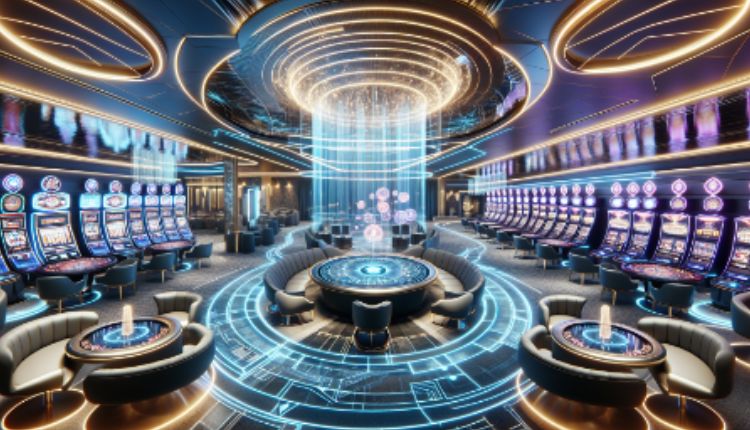In the information age, augmented reality (AR) and virtual reality (VR) technologies have revolutionized various industries, with online gambling experiencing significant transformation due to these innovations. The integration of AR and VR into the gambling sector represents a paradigm shift, fundamentally altering how players interact with digital gaming environments. This article explores the impact of AR and VR on online gambling, highlighting key advancements and the implications for both operators and players.
Evolution of Online Gambling
The online gambling industry has undergone substantial changes since its inception. Initially characterized by basic digital interfaces and limited interaction, early online casinos provided a straightforward experience that mimicked traditional casino games in a digital format. As technology progressed, the introduction of sophisticated graphics and user interfaces at casinos, now comprehensively compared by experts at sites like betting8888.org, enhanced the overall experience. However, these advancements were still constrained by the two-dimensional nature of traditional screens. The emergence of AR and VR technologies has introduced a new dimension to online gambling, enabling a more immersive and interactive experience.
Introduction of Augmented Reality
Augmented reality overlays digital information onto the real world, enhancing the user’s perception of their surroundings. In the context of online gambling, AR technologies enable players to experience casino games in a more interactive and engaging manner. For instance, AR can project a virtual slot machine or poker table onto a player’s real-world environment through a smartphone or AR headset. This technology facilitates a more dynamic interaction, allowing players to experience the thrill of gambling while remaining within their own physical space. AR’s ability to integrate with the real world offers a novel approach to online gaming, bridging the gap between physical and digital environments.
Advancements in Virtual Reality
Virtual reality, in contrast to AR, immerses players entirely within a simulated environment. VR technologies create a fully digital casino experience, where players can navigate virtual spaces, interact with other players and engage with various gaming options. The development of VR casinos has transformed online gambling by providing a 360-degree immersive experience that closely resembles a physical casino. Advanced VR systems enable players to experience realistic game mechanics, such as the tactile sensation of handling cards or chips, enhancing the sense of presence and engagement. This level of immersion represents a significant departure from traditional online gambling experiences, offering a more lifelike and captivating environment.
Impact on User Experience
The integration of AR and VR into online gambling platforms has significantly enhanced the user experience: both technologies contribute to a more engaging and interactive environment, addressing some of the limitations associated with traditional online gambling. For AR, the ability to interact with virtual elements in a real-world setting adds an extra layer of engagement, making games more enjoyable and immersive; VR, on the other hand, provides a completely virtual casino experience, allowing players to explore and interact with a fully digital environment. These advancements improve the entertainment value and contribute to a more realistic and satisfying gaming experience.
Economic Implications
The adoption of AR and VR in online gambling also has notable economic implications: for operators, investing in these technologies involves significant costs, including the development of advanced software and the acquisition of specialized hardware; however, the potential for increased player engagement and retention can offset these initial investments. Overarchingly, the immersive nature of AR and VR experiences may attract a broader audience, including those who seek more interactive and innovative gaming options. Additionally, the enhanced user experience can lead to higher player spending and increased revenue for online gambling platforms.
Regulatory and Ethical Considerations
As AR and VR technologies become more prevalent in online gambling, regulatory and ethical considerations come to the forefront. The immersive nature of these technologies may raise concerns about problem gambling and addiction, as players may find it more challenging to disengage from a highly engaging virtual environment. Regulators and operators must work together to implement measures that promote responsible gambling and affirm participants have access to resources for managing their gaming behavior. Additionally, the use of VR and AR technologies in gambling may necessitate new regulatory frameworks to address issues related to fairness, security and data protection.
Future Prospects
Looking ahead, the integration of AR and VR in online gambling is likely to continue evolving, with ongoing advancements in technology promising even more sophisticated experiences. The development of more realistic and interactive environments—coupled with improvements in hardware and software—may further enhance the appeal of online gambling platforms. Innovations such as haptic feedback, which provides physical sensations in response to virtual interactions, could further bridge the gap between digital and physical experiences. As technology continues to advance, the online gambling industry is poised to offer increasingly immersive and engaging experiences to players worldwide.


